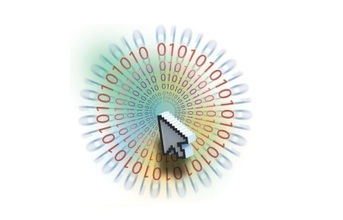
Amitabh Kant, CEO, NITI Aayog, has said that India is uniquely positioned in the global landscape and has the potential to become the leading force in the new world order. "India can create up to $1 trillion of the economic value by digital economy by 2025 with half of the opportunities originating in new digital ecosystems that can spring up in diverse sectors of the economy," he said.
Addressing the virtual session on Collaboration between Industry and Science during the Global R&D Summit 2020, organized jointly by the Department of Science and Technology, GoI and FICCI, Kant said, "India could potentially see a five-fold increase in economic value from digital transformation by 2025. This will represent an attractive opportunity for global and local businesses, start-ups, and innovators to invest in emerging technologies like AI, Blockchain or drones in ways that are customized to Indian needs."
Kant further said that the government is focusing on high-quality public and private R&D and digital is the future both in the private and public sector. "If you want the economy to progress, manufacturing to take a jump forward, and to improve social sectors like health, education, and nutrition, going digital is the way forward. Digital infrastructure is far more critical and important than physical infrastructure," he emphasized.
Kant also said that the rapid adoption of frontier technologies such as AI, Blockchain, and IoT and the advent of COVID-19 has placed the entire digital infrastructure under immense pressure. "With the government progressively working towards goals such as Smart Cities and Smart Health, it is crucial for the nation to augment its digital infrastructure to effectively utilize the frontier technologies in economic development. With surging online activities and a gigantic amount of data being generated, data centres could be of high importance for the world," he added.
Kant added that the pandemic has not only shuffled the global order but has also provided an impetus to the ever- expanding digital infrastructure. Across the globe, countries have leveraged their digital infrastructure to proactively respond to the ongoing pandemic. "Going forward, the resilience of a nation's digital infrastructure could be pivotal in addressing the adversities such as COVID-19," he noted.
Kant stated that the need of the hour is to promote and create a framework for the development of a robust digital infrastructure, which could facilitate the adoption of emerging technologies like 5G, IoT, AI, ML, drones, robotics, etc. These technologies can be used in sectors like defence, health, agriculture, cybersecurity and smart cities and automation with special emphasis on solving real-life problems, he added.
He stated that there is an immediate need to develop a local supply chain network that has been recognized and efforts in this direction through the PLI scheme would adequately support the indigenous electronic manufacturing. "The Atmanirbhar Bharat policy could give the much-needed fillip to the country's disruptive business operations by promoting indigenous manufacturing, encouraging substitution of imports of low technology goods and encouraging local produce at lower prices. Industry should develop short-term strategies and calibrated decision making in order to address disruptions caused due to the pandemic," Kant added.
Sanjay Nayak, CEO & MD, Tejas Networks said that the real vision of Atmanirbhar Bharat is to make and design solutions not just for India, but for the entire world.
Dr Shekhar C Mande, Secretary, DSIR and DG, CSIR said that we must make sure that different industries adopt digital technology so that we rapidly move forward.
Dilip Chenoy, Secretary General, FICCI said that learnings from the pandemic to convert the crisis into an opportunity will make us leaders in the digital space and in the collaborative space going forward.
END



























